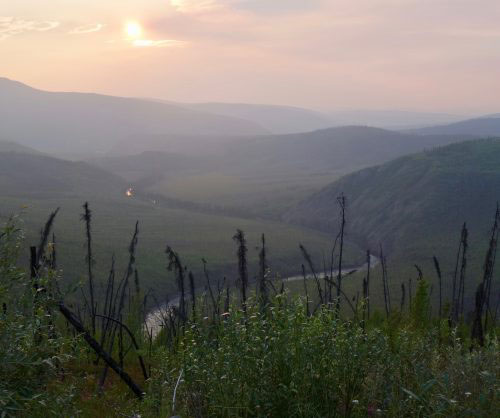


















 Contact Contact 
 Webmail
Letters Webmail
Letters
 News Tips News Tips
 Copyright Info Copyright Info
 Archives Archives
Quick News
Search
 Alaska Alaska
 Ketchikan Ketchikan
 SE Alaska SE Alaska
Columns
- Articles
 Dave Kiffer Dave Kiffer
 Money Matters Money Matters
Historical
Ketchikan
 June Allen June Allen
 Dave
Kiffer Dave
Kiffer
 Louise
B. Harrington Louise
B. Harrington
Sports
 Ketchikan Links Ketchikan Links
Public Records
 FAA Accident Reports FAA Accident Reports
 NTSB
Accident Reports NTSB
Accident Reports
 Court Calendar Court Calendar
 Recent Filings & Case Dispositions Recent Filings & Case Dispositions
 Court Records Search Court Records Search
 Sex Offender Reg. Sex Offender Reg.
 Public Notices Public Notices
 Alaska Recall Alerts Alaska Recall Alerts
 Recalls.gov Recalls.gov
 AST Daily Dispatch AST Daily Dispatch
 KTN
Police Reports KTN
Police Reports
 Juneau Police Reports Juneau Police Reports
Weather,
Webcams
 Today's
Forecast Today's
Forecast
 KTN
Weather Data KTN
Weather Data
 AK
Weather Map AK
Weather Map
 AK Weathercams AK Weathercams
 AK Earthquakes AK Earthquakes

|
|

Friday
February 07, 2020

|
Southeast Alaska: Tribal members, military hold historic meeting on bombardments - Elders and other tribal members from Angoon, Kake and Wrangell participated in a historic meeting this week with Alaska’s senior military leader to discuss bombardments on the three villages waged by the United States in 1869 and 1882.
Lt. Gen. Thomas A. Bussiere and his aides met with tribal members at Sealaska Heritage Institute (SHI) on Wednesday to discuss possible ways to reconcile and to heal.
“What might be a path forward in opening the dialog with a purpose of healing and a deeper understanding?” Lt. Gen. Bussiere asked tribal members.
The meeting was often emotional because the suffering of the ancestors still feels raw today, said some attendees. Representatives from Angoon said they grew up with the story of the bombardment by the U.S. Navy that destroyed their village, canoes and winter food stores and led to terrible hardship that winter and in the years that followed.
The Angoon story has persisted for so many years, in part, because it was never resolved. The U.S. Navy has never apologized, despite many pleas by the grandparents, great grandparents and great-great grandparents of people living today.
“The last group of people from Angoon who traveled to DC to meet with the Navy were met with silence and no responses of any sort,” said a tribal member from Angoon. “It might sound like it happened a long time ago, but the echoes of that day still can be heard and felt today. Getting some sort of resolution is something that would be very good for all of our people.”
Members from all of the communities thanked Lt. Gen. Bussiere and his team for initiating the meeting in hopes of finding a resolution. Lt. Gen. Bussiere said he first heard about the Angoon bombardment a year ago when SHI President Rosita Worl gave a lecture at a military event. After, he researched the bombardment and realized all sides might be able to potentially do something that would help heal the people affected. Then he approached Worl about setting up a meeting.
“I was astounded when a military officer approached me wanting to understand the bombing of Angoon. We took it upon ourselves to have him in our clan because this is an honorable man,” said SHI President Rosita Worl, a Thunderbird.
The Thunderbirds adopted Lt. Gen. Bussiere into their clan and gave him the Tlingit name Litseenik?Ša. Worl later recommended that the military also consider meeting with Kake and Wrangell about the attacks that occurred there.
Members from all three communities said they saw the meeting as the beginning of a process that would lead to a reconciliation. They said they wanted any outreach to come from the branch of military that waged the bombardments. Although Lt. Gen. Bussiere cannot speak for all of the branches that led the attacks, he said he felt confident that he could facilitate positive discussions.
Tribal members also said they wanted any ceremonies held in connection with the bombardments to happen in the villages where the attacks occurred.
“We’re in the weeds of intergenerational trauma,” said Dawn Jackson, executive director Organized Village of Kake. “We want our whole community to witness it. It’ll take five generations from me to heal what has been done.”
Some tribal members raised the idea of monetary compensation, which would be in keeping with sacred ceremonies. For example, about a year after a clan member dies, the deceased person’s clan holds a ceremony called a ku.éex’, which are sometimes known as payoff parties. During the ku.eex’, the sadness is lifted and the host clan pays cash to clans of the opposite moiety for helping in their time of grief.
“A big part of our culture is when we have a ku.eex’, we wipe away our tears. We pay off the people who have helped us in our time of need,” said Joe Zuboff of Angoon. - More...
Friday PM - February 07, 2020 |
|
Alaska: Proposed legislation would double marine fuel tax By MARY KAUFFMAN - The Alaska Senate Finance Committee held a meeting Friday morning on Senate Bill 115, a bill which if eventually passed would raise taxes on motor fuels. As proposed, the bill would double the tax on marine fuel to 10 cents per gallon.
The sponsor of this bill is Senator Click Bishop (R-Fairbanks). Bishop writes in his sponsor's statement of the bill that since 1945, Alaska has levied an excise tax on motor fuel sold, transferred or used within the state. The tax is collected by the Alaska Department of Revenue primarily from wholesalers and distributors that possess a qualified dealer license issued by the department. AS 43.40.010 sets the base tax rate per gallon for four separate motor fuel types; highway (8 cents), marine (5 cents), aviation (4.7 cents) and jet (3.2 cents).
According to Bishop's sponsor's statment, the last time Alaska updated its motor fuel tax rates was 50 years ago in May 1970. For a long time, Alaska has had the lowest motor fuel tax rates in the nation. SB 115 proposes to increase the tax rates on highway and marine motor fuels to 16 cents and 10 cents per gallon respectively. With this increase, Alaska would still have the lowest marine fuel tax in the nation while our ranking for the highway fuel tax would move from 50th to 48th, writes Bishop.
Alaska’s motor fuel tax rate of 8 cents per gallon was typical compared to other states when it was enacted in 1970 writes Bishop. Since then, however, every other state has gradually increased its fuel tax rates while Alaska has remained frozen in time. After adjusting for inflation, an 8 cent fuel tax rate in 1970 is the equivalent in purchasing power to 52 cents today. In other words, Alaska’s fuel tax has lost 82 percent of its purchasing power since 1970. - More...
Friday PM - February 07, 2020
Alaska: Dunleavy Administration Releases FY20 Supplemental Bill Edited By MARY KAUFFMAN - The Dunleavy administration on Wednesday released the FY20 supplemental bill to cover the unanticipated costs from two natural disasters and Medicaid services and programs. The legislation also contains funding to continue to improve public safety in Alaska, repair transportation infrastructure, and provide mental health and elder care services.
“The state has unanticipated and significant costs that will have to be covered this year through supplemental appropriation legislation,” said Governor Mike Dunleavy. “We still have significant earthquake damage that needs to be repaired, in addition to last summer’s massive wildfires that drained the disaster account, and an abrupt change in direction by the federal government on Medicaid funding. My administration will continue to make every effort to keep State spending in check and will continue to push for constitutional amendments that cap the State budget, allow Alaskans to approve any proposed State taxes, and secure the PFD for Alaskans today and in the future.” |
|
The supplemental bill, SB 174 / HB 234, totals $262.5 million in unrestricted general funds and $225 million in Federal matching funds for a total of $507.9 million. The cost to extinguish the wildfires, repair earthquake damage, and fund Medicaid services, accounts for $250.4 million of the $262.5 million in unrestricted general funds.
Alaska Speaker of the House Bryce Edgmon (I-Dillingham) reacted to the FY20 supplemental bill in a prepared statement saying, “Hopefully, the lesson has been learned that deep cuts carry significant consequences and require careful analysis. It is encouraging that the supplemental budget does not include backpay for an oversized dividend, which would put our state’s financial future at risk." - More...
Friday PM - February 07, 2020
Alaska: Sullivan Rebukes Senate Democrats’ Efforts to Block ANWR Development - U.S. Senator Dan Sullivan (R-Alaska), a member of the Senate Environment and Public Works Committee, rebuked 16 of his Democratic colleagues in a committee hearing yesterday for signing onto a letter to the heads of the nation’s 15 largest banks that called on the banks to refrain from investing in Alaska’s North Slope, particularly impending energy development within the non-wilderness 1002 Area of the Arctic National Wildlife Refuge (ANWR).
“I'm going to be a little partisan here, because it's always coming from the Democrats [who] seem to always want to tell me and my state how to manage Alaska's environment,” said Senator Sullivan. “And then you take the train [up the East Coast corridor] and you're like, ‘Holy crap!’ You're telling me how to manage my environment? Look at this environmental wasteland.”
“Over one-third of the Democrats in the Senate sent a letter to some of the top bankers in America to further impoverish my constituents. Unprecedented,” Sullivan added.
In 1980, Congress set aside the 1.57-million acre 1002 Area of ANWR for potential future development. For 37 years, the members of Alaska’s congressional delegation have championed legislation to open this area to responsible energy development. - More...
Friday PM - February 07, 2020
Alaska: Bill Establishing June 7 as ‘Walter Harper Day’ Passes Alaska Senate - The Alaska Senate today unanimously passed a bill establishing Walter Harper Day on June 7 of each year.
“Walter Harper left an indelible mark on Alaska history when, at the young age of twenty, became the first person to stand atop the summit of Denali on June 7, 1913,” said Senator Click Bishop (R-Fairbanks), the bill’s sponsor. “The sheer stamina and exceptional self-composure he displayed during this expedition were the trademarks of this great Alaskan’s impeccable character.”
Harper was born in Tanana in December of 1892, the youngest child of an Athabascan mother and an Irish father.
“Walter’s thorough integration into his father’s Western culture without forfeiting an ounce of his mother’s Athabascan heritage serves as a beacon to Alaska Native and other Indigenous youth the world over,” Sen. Bishop said.
In 1910, Archdeacon Hudson Stuck chose the 17-year-old Harper to be his riverboat pilot, winter trail guide and interpreter as he traveled throughout Alaska’s Interior as a missionary.
For the next three years, Harper excelled under Stuck’s tutelage, culminating with his historic ascent of Denali in the expedition led by Stuck and Harry Karstens in the spring of 1913.
Harper died tragically at the age of 25, along with his new bride of only seven weeks, Frances Wells Harper, aboard the Princess Sophia when the steamer ran aground in the Lynn Canal on October 25th, 1918. - More...
Friday PM - February 07, 2020
|
|
Fish Factor: Lawmakers are making fast work of several fish bills By LAINE WELCH - Alaska lawmakers are making fast work of several fish bills that have wide support from Alaska’s fishermen.
“I was anticipating a somewhat slow start, but they're organized and they're diving right into these issues and taking these bills up. And so there’s lots of opportunities to participate,” said Frances Leach, executive director of United Fishermen of Alaska.
The bill (HB 35) that would resolve a conflict of interest fix at the state Board of Fisheries has been moving through committee hearings in Juneau and could finally be settled after a 14 year push.
“One of the reasons they're chosen for that board is they may have a regional expertise or they may have a user group expertise. So we want them to be able to not vote, but participate and lend that expertise in deliberations to provide clarification to other board members who may not be as familiar with that region or fishery,” Leach said.
Another fast moving measure (HB 85 and SB 145) aims to give boat owners a break from having to register it in person at a DMV. It was part of a well-intentioned Derelict Vessels Act whose ill-timed roll out last year by the Dept. of Administration created chaos among commercial and sport boat owners who were breaking a new law they didn’t even know about.
UFA supports the concept of the Act which is aimed at identifying owners of abandoned boats, “but we are really pushing for this exemption because we already register our boats through the state Commercial Fisheries Entry Commission and they have all the details that would be going to the DMV because they're both state managed data bases. So it's kind of like reinventing the wheel and just causing more work,” Leach said.
A bill that would allow Alaskans to transport live crab (HB 203) also is moving its way through the legislative process. Live crab is the most lucrative market and the bill has UFA’s strong backing.
“As the statutes currently stand we're not able to transport red king crab, Tanner crab and Dungeness live via ground. This bill would make it so that could happen and it would open up some new avenues, I believe,” Leach explained.
UFA also strongly backs bills supporting Alaska’s mariculture industry and a sound commercial fisheries budget.
Other fishery related bills in the legislative pipeline include providing product development tax credits for cod and pollock (SB 130) and a push for a personal use priority above all other users (SB 99). Another measure that is resurfacing is HB 199 which seeks to create “rehabilitation permits” to allow transfer of fish eggs or fry from waters in one locale or region to enhance habitat in waters elsewhere.
Leach said UFA will solidify its positions on more fish bills at the annual meeting Feb. 25-27 in Juneau. United Fishermen of Alaska is the nation’s largest fishing trade group with 35 member groups, from small skiff fisheries to the largest at-sea processors. - More...
Friday PM - February 07, 2020 |

Keeping the carbon in Alaska forests
By NED ROZELL
Alaska wildfire smoke, such as that seen in this photograph, delivers as much carbon dioxide to the atmosphere in an average year as the annual exhaust produced by 13 million cars, said Carly Phillips of the Union of Concerned Scientists.
Photo By NED ROZELL |
|
Alaska: Keeping the carbon in Alaska forests By NED ROZELL - A scientist has an idea for reducing global carbon-dioxide emissions — fight Alaska forest fires more aggressively.
Carly Phillips, an ecologist with the Union of Concerned Scientists, thinks there is a unique Alaska opportunity to keep carbon in the soil, and in tissues of living trees and other plants.
“Alaska stores nearly one half of U.S. land carbon,” Phillips said in December at the fall meeting of the American Geophysical Union. “In the past 20 years, the amount of burned area from Alaska wildfires has gone up.”
The average amount of carbon dioxide reaching the atmosphere in Alaska wildfire smoke each year from 2001 to 2015 was equal to what 13 million cars spew in one year, Phillips said. In 2019, more than 2 million acres of Alaska burned.
Much of the greenhouse gases emitted by Alaska wildfires are from wilderness areas hit by lightning strikes. Alaska fire managers let many of these fires burn, because they are not threatening life and property, and they are expensive to fight.
Phillips and her colleagues have been running the numbers on the acreage and CO2 emissions of Alaska forests that might be spared with more aggressive firefighting. She figured if Alaska’s firefighting budget were quadrupled, there could be a 60 percent reduction in acreage burned each year.
“That’s similar to nearly 7 million cars removed from the road,” she said.
Phillips, who lives in Massachusetts and also has an affiliation with Woods Hole Research Center, has met with Alaska wildfire professionals several times over the past few years.
Tom Paragi, a biologist with the Alaska Department of Fish and Game who attended one of the meetings, said fire managers told Phillips that wildfires are a natural disturbance that creates new habitat for wildlife. He also pointed out that occasional fires break up stands of flammable black spruce, which can spread into massive fires during hot and dry summers.
Another point the Alaskans brought up was the extreme cost of fighting remote fires with helicopters and tanker aircraft, as well as the fact that, though Alaska has an impressive swath of boreal forest, it is small compared to Russia and Canada. - More...
Friday PM - February 07, 2020
|
MICHAEL REAGAN: WINNERS AND LOSERS - It started Sunday night with an exciting and hard-fought Super Bowl game, which I was happy to see end with the Kansas City Chiefs defeating the San Francisco 49ers.
Then the next day came the Iowa caucus, aka the Democrat Party’s Iowa fiasco.
For weeks, the liberal mainstream media and cable TV had been building up the importance of a win in Iowa.
They treated the state’s obsolete caucus process like a sacred ceremony of grassroots democracy that was going to play a crucial role in deciding the Democrats’ choice to dethrone President Trump.
The caucus was over on Monday.
As of Thursday afternoon, we still didn’t know who won, thanks to the incompetence and serial screw-ups of the state’s Democrat Party election officials.
The two “winners” – Mayor Pete and Bernie Sanders – are essentially tied. But since those results were riddled with many inconsistencies, the final score can never be trusted.
At this point, though, Iowa doesn’t matter. No one cares.
The candidates and the media already have flown off in their private jets to New Hampshire for next week’s primary.
While Democrats were still re-counting in Iowa, President Trump was winning the 2020 election.
On Tuesday night his State of the Union address got high marks from Republicans for content, tone and a handful of emotional stories from special guests, while the Democrats in Congress showed what losers they are. - More...
Friday PM - February 07, 2020
|

Political Cartoon: 2020 State of the Union
By Bruce Plante ©2020, Tulsa World
Distributed to paid subscribers for publication by Cagle Cartoons, Inc. |
Standing up for Alaska’s Pioneers By Rep. Dan Ortiz - Last year, I cosponsored and voted for House Bill 96, which reverses massive rate increases at the Pioneer Homes. This bipartisan legislation passed the House 35-4 and now is being considered by the Senate. If the Senate passes HB 96, we can reverse the devastating rate increases and provide critical financial stability both for residents and our Pioneer Home system.
Lowering and stabilizing Pioneer Home rates is a win-win for residents and for the system’s fiscal stability. We heard testimony from non-partisan Legislative Finance budget experts that massive rate increases actually could reduce revenue. Here’s why: Massive rate increases make the Pioneer Homes far more expensive than alterative care, whether that’s in-home care or an assisted living facility. Prior to the Dunleavy administration’s huge rate increases, more than half of Pioneer Home residents were “self-pay” and paid the department’s rates. Already, the large rate increases have reduced the number of private payers and increased the number who are on “payment assistance,” or state subsidies. - More...
Tuesday PM - February 04, 2020
 |
American Government By Hannah Ramiskey - I was shocked to hear that a Ketchikan School Board member has contacted administers and teachers of the school district to gauge their reaction to eliminating a semester of American Government in the district curriculum. Then students were asked how they felt about that and would they rather take subjects that were more interesting to them?
Wow, from the beginning of this country, our Republic has survived because it depends on educated voters to maintain our freedoms. Even in 1776 there were lots of newspapers and citizens reading the news to those who couldn’t.
No matter what side of any issue we are on, everyone should know what is in the Constitution and related documents to allow us to weed out that which is not accurate. And, with twenty-four- hour news on television and on line, someone has to fill the time – every second. Talking heads grab each story, true or false, to engage the public and an agitated public is great for ratings. It also makes for constant conflict as the nation becomes more divided. - More...
Thursday PM - January 30, 2020
First Week of Legislative Session By Rep. Dan Ortiz - The Alaska State Legislature began its 2020 session on January 21st. Last Friday, the Legislature held a joint session to vote on overriding two of Governor Dunleavy’s vetoes of House Bill 2001 from August of 2019. The Legislature had five days once we began session to address veto overrides. HB2001 was an appropriations bill created this summer to reverse some of the items that were vetoed from the original operating budget.
HB2001 included $5 million for AMHS, specifically to provide at least some service to areas like Cordova who have been - and will be - without service for months. HB2001 also included the full amount the state is obligated to pay for school bond debt reimbursement (the Governor vetoed 50% of the funding). The State pays 60-70% of school bond debt, which funds voter-approved construction projects or emergency needs. The remaining percentage is paid for by local municipalities. Governor Dunleavy’s veto of the State funded portion will not eliminate the need for funds, but simply transfer the burden to the local level. In Ketchikan, they will need to make up over $1.2 million in lost state funding and in Wrangell it amounts to a little under $87 thousand. When speaking on the Floor, Senator Stedman reminded the Legislative body that paying the promised reimbursement is, while not necessarily a legal requirement, a moral obligation. - More...
Thursday PM - January 30, 2020
 |
Focusing on the Fundamentals By Colonel Bryan W. Barlow - I am not new to Alaska or to the Alaska State Troopers, having served more than 20 years in the ranks. However I write today as the new Director for the Alaska State Troopers (AST), I want to introduce myself to Alaskans and take time to tell you what I want to accomplish while serving as Colonel for this great agency. Sports coaches often tell athletes of all ages that fancy plays aren’t what win games, its learning and mastering the fundamentals. I plan for AST to do just that: focus on our fundamentals.
What does that mean? It means continuing to prioritize recruitment and retention of high quality state troopers, filling our support staff vacancies, developing employee wellness initiatives, and placing focus on in-service and advanced training.
Under the Dunleavy Administration, the Department of Public Safety has received a lot of support designed to build this agency into the healthiest it’s been for quite some time. We need to keep this momentum up or risk losing valuable talent from both our civilian and our trooper ranks. The goals of increasing the numbers of Troopers available to serve Alaska include decreasing the amount of time it takes for a Trooper to respond to a call for service, more active community engagement from our Troopers, and opening more Trooper posts in rural Alaska. The Alaska State Troopers are, for all purposes, a rural police agency and my focus is on strengthening our agency to serve Alaskans all through this great state more effectively. - More...
Thursday PM - January 30, 2020
Alzheimer’s Association Alaska By Molly Pellegrom - Being a caregiver can be isolating. It can be even more difficult for Alaskans who are not on the road system.
You are not alone. Many Alaskans face the same challenges.
According to a survey conducted by the Center for Disease Control in cooperation with the State of Alaska, 33,000 Alaskans across our state provide care on a regular basis for loved ones with dementia.
Alzheimer’s Association Alaska is here to help all Alaskans affected by dementia. You don’t have to live on the road system to access our services. - More...
Thursday PM - January 30, 2020
I DID NOT KNOW THE RUSSIANS ARE OUR DEAREST FRIENDS??? By David G Hanger - I had a conversation a few days ago with a young friend of mine in his mid-30s who spent quite a bit of time explaining to me in detail how much the Russians are and have been our dearest friends. I am real curious what web sites, news sites, etc. are propagating these brilliant observations about our dear Russian friends that I may be informed and educated on the source of this drivel. - More...
Thursday PM - January 30, 2020
 |
A Practice in Health By John Cross - Under the Affordable Care Act, hospitals are required to publish detailed financial reports. One report hospitals are required to release is called the: Schedule H Form. The Schedule H Form outlines how much money-losing care hospitals offer to their patients; hospitals refer to this number as their “charity care” (Internal Revenue Service, 2019). Hospitals, in exchange for receiving tax breaks at the State, Local, and Federal level, are expected to provide a reasonable amount of charity care (Government Accountability Office, 2018). The City of Ketchikan’s hospital lease with PeaceHealth expires in 2023. This paper will argue that the City of Ketchikan should examine PeaceHealth’s local and corporate practices before extending PeaceHealth’s hospital lease. - More...
Saturday PM - January 25, 2020
 |
Cripple Iran's Strategic Weapons By Donald Moskowitz - In a New Hampshire Union Leader oped Dr. Jessica Tuchman Mathews described why the Trump administration should continue the Iranian nuclear agreement. She delved into the value of the agreement and how the U.S. and the world were relatively safe from a nuclear attack by Iran for 15 years if the agreement remained in force. This was terrible thinking. - More...
Saturday PM - January 25, 2020
AMHS Reshaping Draft Report By A. M. Johnson - Regarding the long awaited for report on the future status of the Alaska Marine Highway System, I first was furious at the content as I thought of the thousands of dollars spent on this result. - More...
Monday AM - January 20, 2020
Email letters, opinions, OPEDs to editor@sitnews.us
|
Articles &
photographs that appear in SitNews may be protected by copyright
and may not be reprinted or redistributed without written permission
from and payment of required fees to the proper sources.
E-mail your news &
photos to editor@sitnews.us
Photographers choosing to submit photographs for publication to SitNews are in doing so, granting their permission for publication and for archiving. SitNews does not sell photographs. All requests for purchasing a photograph will be emailed to the photographer.
|
|










The Local Paper is
available online.
Click here for this week's printed edition (PDF)


|
|
![]() Contact
Contact ![]()
![]() Webmail
Letters
Webmail
Letters![]()
![]() News Tips
News Tips![]()
![]() Copyright Info
Copyright Info![]() Archives
Archives![]() Alaska
Alaska![]() Ketchikan
Ketchikan![]() SE Alaska
SE Alaska![]() Dave Kiffer
Dave Kiffer![]() Money Matters
Money Matters ![]() June Allen
June Allen![]() Dave
Kiffer
Dave
Kiffer![]() Louise
B. Harrington
Louise
B. Harrington ![]() Ketchikan Links
Ketchikan Links![]() FAA Accident Reports
FAA Accident Reports ![]() NTSB
Accident Reports
NTSB
Accident Reports![]() Court Calendar
Court Calendar![]() Recent Filings & Case Dispositions
Recent Filings & Case Dispositions ![]() Court Records Search
Court Records Search![]() Sex Offender Reg.
Sex Offender Reg.![]() Public Notices
Public Notices![]() Alaska Recall Alerts
Alaska Recall Alerts![]() Recalls.gov
Recalls.gov![]() AST Daily Dispatch
AST Daily Dispatch![]() KTN
Police Reports
KTN
Police Reports![]() Juneau Police Reports
Juneau Police Reports ![]() Today's
Forecast
Today's
Forecast![]() KTN
Weather Data
KTN
Weather Data![]() AK
Weather Map
AK
Weather Map![]() AK Weathercams
AK Weathercams![]() AK Earthquakes
AK Earthquakes




































